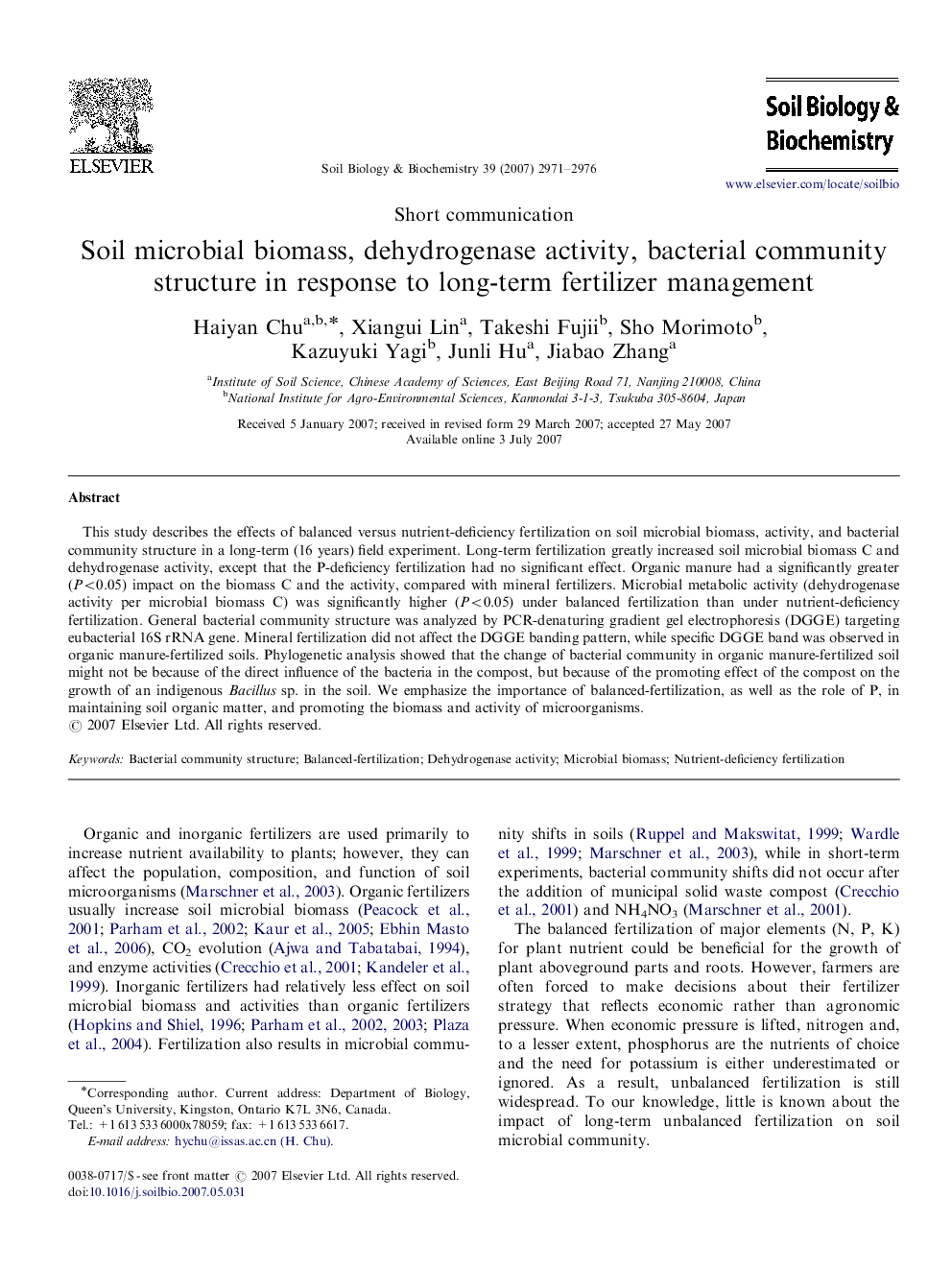| Article ID | Journal | Published Year | Pages | File Type |
|---|---|---|---|---|
| 2027046 | Soil Biology and Biochemistry | 2007 | 6 Pages |
This study describes the effects of balanced versus nutrient-deficiency fertilization on soil microbial biomass, activity, and bacterial community structure in a long-term (16 years) field experiment. Long-term fertilization greatly increased soil microbial biomass C and dehydrogenase activity, except that the P-deficiency fertilization had no significant effect. Organic manure had a significantly greater (P<0.05) impact on the biomass C and the activity, compared with mineral fertilizers. Microbial metabolic activity (dehydrogenase activity per microbial biomass C) was significantly higher (P<0.05) under balanced fertilization than under nutrient-deficiency fertilization. General bacterial community structure was analyzed by PCR-denaturing gradient gel electrophoresis (DGGE) targeting eubacterial 16S rRNA gene. Mineral fertilization did not affect the DGGE banding pattern, while specific DGGE band was observed in organic manure-fertilized soils. Phylogenetic analysis showed that the change of bacterial community in organic manure-fertilized soil might not be because of the direct influence of the bacteria in the compost, but because of the promoting effect of the compost on the growth of an indigenous Bacillus sp. in the soil. We emphasize the importance of balanced-fertilization, as well as the role of P, in maintaining soil organic matter, and promoting the biomass and activity of microorganisms.
